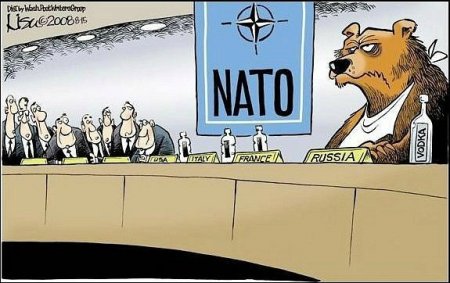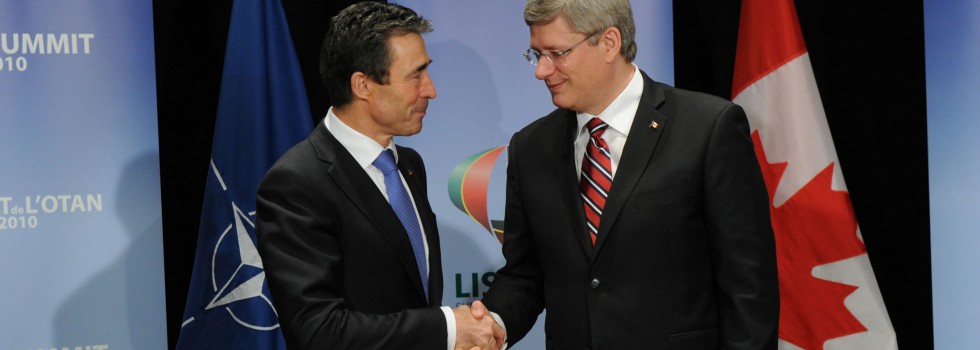By: Amrit Naresh from the Atlantic Community – Berlin.
At Issue: Europe’s defense sector needs reform. To cut costs and improve capabilities, states should consolidate national priorities to enhance political cooperation, streamline their administrative structures, further integrate their militaries and create an open defense market across the EU.
Recognizing that Europe’s defense ministries must cut spending to stay within budget constraints, the Atlantic Community hosted a theme week to explore ways in which Europe can improve security while spending less. Contributors agreed that in order to improve its military capability and efficiency, Europe must resolve its internal divisions and recognize that long-term solutions will likely involve short-term costs. The recommendations made in the ‘Security Despite Austerity’ theme week are summarized in the Atlantic Memo below.
1. Consolidate priorities and enhance political cooperation on defense.
Many defense ministries are making short-term spending cuts on a national basis without coordinating with their European partners. Austerity will impact the European defense sector for years to come, and individual, successive cuts such as those recently made in the UK and Germany do not promote long-term efficiency in defense. To more effectively cut spending and improve capability, states must coordinate reforms (Mölling).
Atlantic Community members agree that defense cooperation between states requires complex conditions for success, including similar strategic cultures and political cooperation, and that NATO and the EU offer appropriate structures for this kind of reform.
Coordinated reform is not possible, however, if states do not reconcile differing views on their collective future and agree on Europe’s most pressing threats. Some view Russia as a partner while others view it as a threat; likewise, there is no consensus on whether Europe will continue to integrate and be unified or if internal divisions will ultimately drive European states apart (Dorman). Political relations are also strained by disparities in burden-sharing in Afghanistan. These asymmetries have divisive effects on European solidarity, and must be reduced to achieve coordinated, long-term reform (Schnaubelt).
2. Streamline for short-term savings, integrate for long-term efficiency.
Large scale reform is unlikely to result in short-term savings, but it is the best way to improve long-term security by promoting efficiency and reducing over-reliance on the US.
The best way Europe can save money now is for NATO to avoid taking on new, ambitious expeditionary missions. Short-term savings could also come from common sense structural changes to streamline national defense ministries, which could reduce overhead by cutting unnecessary projects and personnel (Schnaubelt).
To make defense more efficient in the long term, states should implement pooling and sharing at the earliest stages of project research and development. The first step should be to link national capabilities to the industrial/technological base to enhance cross-border cooperation in equipment development and procurement; for whatever is developed and built jointly can easily be bought, operated and fought with jointly (Mölling).
Europe could also implement a two-tiered system with national militaries to retain basic land, air and sea capabilities for homeland defense and a pan-European force to handle specialized and expeditionary missions (Gvosdev). Alternatively, states could work in partnership – bilaterally, trilaterally or multilaterally – and specialize in the capabilities they produce best (Dorman). States should also make long-term investments in military training, education and new equipment fielding to meet future challenges (Schnaubelt).
3. Open defense markets across national boundaries.
Opening the defense market across all EU states would reduce equipment duplication and lower prices through increased competition and greater economies of scale (Helbig). The civilian sphere of industrial, technological, regulatory and structural policies must be coordinated under the auspices of the EU to achieve lasting defense sector reform. Rather than letting the bulk of equipment purchases be made within national boundaries, as they currently are, the EU should break state protectionism, cut red tape and increase cross-border competition between arms manufacturers, allowing market forces to prevail over concerns of national prestige (Titoff).
Disclaimer: Any views or opinions expressed in this article are solely those of the authors and the news agencies and do not necessarily represent those of the NATO Council of Canada. This article is published for information purposes only.



